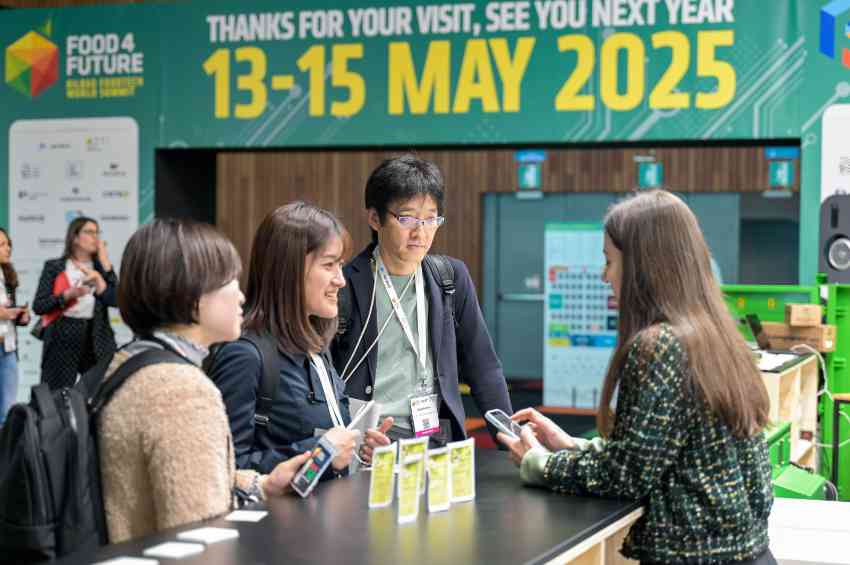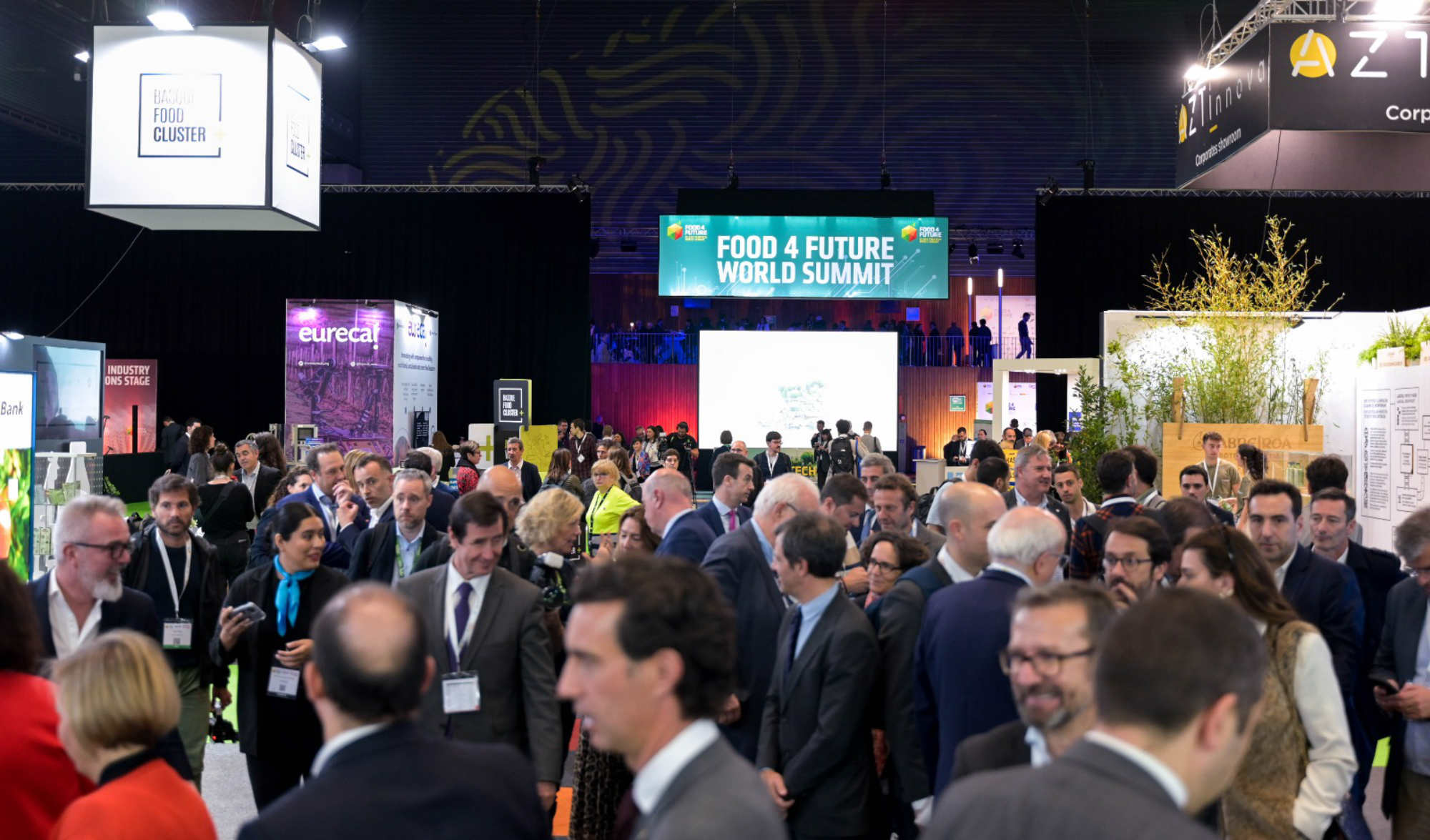The technological week of the food industry, with the simultaneous celebration of Food 4 Future – Expo Foodtech 2024 and Pick&Pack for Food Industry, has once again made Bilbao, Spain, the international foodtech capital, leaving an economic impact of 19 million euros for the city. The global multi-specialist meetings dedicated to the dairy, fishing, meat and bakery sectors, among others, have brought together 9,037 international congress participants from 34 countries who, for three days, have discovered the latest trends and technological solutions in AI, robotics, automation, IoT, as well as new ingredients, which are leading the food industry towards a more efficient, sustainable and technological model.
287 exhibitor firms presented at the BEC-Bilbao Exhibition Centre the innovations that are setting the roadmap for the sector in terms of sustainability, machinery, safety and food science in all its segments. Together with 482 leaders from renowned firms such as Pepsico, Campofrío, Danone, General Mills, Hijos de Rivera, Nauterra, Nestlé, Capsa and Diageo, who have unveiled the strategies and innovations that are helping the industry to adapt to the current socio-economic situation and to advance in the circular economy, thanks to the new technologies.
New trends and more sustainable, healthier and more affordable demands
The last day of the event responded to the new behaviors of a consumer who is looking for sustainable, healthy and affordable options. María Soledad Camacho, Vice President of Marketing at Danone, said that to reach an increasingly health-conscious customer, it is important to have inspiring products that are scientifically proven. “As a brand, we create healthy, sustainable, accessible products that impact consumer needs. This year in the European markets, we will see Actimel start to work with different targets with 3 different immunological needs. We not only need to respond to increasingly demanding needs, but also the responsibility to mobilize the industry towards more sustainable practices”.Enrique Rodríguez, Commercial Delegate of Vichy Catalan, highlighted that “a new generation of beverages is positioning itself with new options for the future: flavored and fortified water, water-based gel drinks and freeze-dried powder solutions“.
Alberto Jimenez, CEO of Smileat, said that sustainability is in the company’s DNA. In terms of marketing, the contribution of his company is to offer value through disclosure and listening to families, as they did with the launch of a cereal that only contains 3% sugar. “It took us two years to launch it with the help of a technology center. I think we contributed a lot as a category. Guillermo Mena Sánchez, Global Research & Innovation Director at Global Fruselva, is committed to investing in innovation and staying close to customers to add value. As for the gaps that the industry may encounter along the way, he remarked that “regulatory rigidity means that it is not possible to advance at a pace that is good for people’s health”. In addition, he stated that “nutritional education is growing very slowly in Spain, so we have a responsibility from schools to old people’s homes“.
To get closer to the consumer through marketing strategies and new business models, participants at the congress cited personalization and data processing as key elements. Iker Ganuza, Country Manager Spain, Pepsico, shared how the company has developed a “consumer DNA” engine to profile consumers based on criteria such as demographics, habits, etc., together with the profiling of shops to optimize product positioning and obtain better conversion. Lotus Bakeries has opted for experiential pop-ups in points of sale so that people can try the product, as well as new ways of consuming the product, according to its CEO, Víctor Villanueva.

Advancing decarbonization
Decarbonization and the commitment to the circular economy was one of the cross-cutting themes present at the meeting, where strategies to minimize waste, improve resource efficiency and promote recycling initiatives throughout the product life cycle were addressed. After highlighting the values of its Sustainability strategy for 2023, Candela Aldao, Senior Manager of Sustainability at Mahou San Miguel confirmed that the company is working to produce more sustainable beer, and on some pilot projects, such as the opportunity to provide a second use for the grain used in the manufacture of beer, offering it to entrepreneurs to make edible cutlery.
In this context, Clara Hernández, Environmental and Climate Change Director at Campofrío Sigma, detailed the circular economy projects with reuse in its facilities and factories that the company is carrying out. In Burgos, for example, “pig intestinal mucus is processed to produce heparin for medical use“. Among other measures, Emiliano Martus Barelli, Director of Environmental Sustainability at Hijos de Rivera (Estrella Galicia), indicated that the company uses biogas as a source of energy in the brewery and uses solar panels in its factory in A Grela. In addition, they have managed to implement 100% recycled rPET in mineral water bottles and a 70% reduction in carbon emissions per bottle.
Mariví Sánchez, Head of Sustainability and Communication at Nauterra, has opted for the “need to invest in sustainable fishing practices and circularity” and has set the goal of not throwing waste into landfills by 2025. Supported by the eco-design of the product, the company advocates the reduction and recovery of waste, as evidenced by a project underway between 2018 and 2023, which has managed to recover 80% of waste globally.

